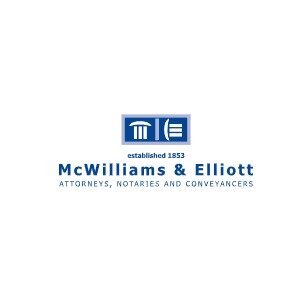Best Creditor Lawyers in South Africa
Share your needs with us, get contacted by law firms.
Free. Takes 2 min.
Or refine your search by selecting a city:
List of the best lawyers in South Africa
About Creditor Law in South Africa
Creditor law in South Africa encompasses a comprehensive framework that governs the rights and obligations of creditors, debtors, and related parties. It involves the collection of debts, securing financial agreements, and ensuring that creditors' rights are upheld in the case of defaults or insolvency. South African law seeks to balance the interests of creditors and debtors, ensuring fair treatment while maintaining the integrity of financial and credit systems.
Why You May Need a Lawyer
There are numerous situations where a person may require legal assistance in the realm of creditor law. These include:
- Dealing with bankruptcy or insolvency issues.
- Negotiating repayment plans for overdue debts.
- Enforcing or contesting judgments regarding unpaid debts.
- Advising on rights and responsibilities regarding secured transactions and liens.
- Resolving disputes between creditors and debtors, including disputes over amounts owed.
- Guiding businesses and individuals through legal proceedings related to debt collection.
- Handling asset liquidation and distribution to creditors in the case of insolvency.
Local Laws Overview
Several key legislative frameworks and principles guide creditor law in South Africa:
- The National Credit Act (NCA) regulates the credit industry, promoting responsible lending and borrowing practices.
- The Insolvency Act governs procedures related to personal and corporate insolvency, prioritizing claims and protecting creditors' rights.
- The Companies Act includes provisions for business rescue, providing an alternative to liquidation by attempting to rehabilitate financially troubled companies.
- Common law principles continue to play a significant role, particularly in areas not explicitly covered by statute.
Frequently Asked Questions
What is the National Credit Regulator (NCR)?
The NCR is a regulatory body established under the NCA to oversee the credit industry, ensuring compliance with credit laws and protecting consumers.
How does sequestration affect creditors?
Sequestration is the process of declaring a debtor insolvent. It allows for the assets of the debtor to be liquidated and distributed to creditors according to the priority of claims.
What happens if a debtor defaults on a loan?
If a debtor defaults, creditors can initiate legal proceedings to recover the debt, which may include securing a court judgment or attaching debtor assets.
Can creditors charge interest on overdue accounts?
Yes, creditors can charge interest on overdue accounts, provided it is within the limits set by the NCA and agreed upon in the initial credit contract.
What is a debt review and how does it affect creditors?
Debt review is a process available to over-indebted consumers in South Africa, where a debt counselor negotiates repayment terms with creditors on behalf of the consumer.
Can a creditor repossess goods or property?
Creditors can repossess goods or property if they have a valid security agreement and follow the correct legal procedures, including obtaining a court order if necessary.
What role do attorneys play in debt collection?
Attorneys can assist creditors in pursuing debt collection through legal action, negotiating settlements, and securing judgments against debtors.
Are there time limits for debt collection in South Africa?
Yes, the Prescription Act sets time limits for collecting debts, typically three years for most debts, after which they become prescribed and unenforceable.
What is business rescue and how does it impact creditors?
Business rescue is a procedure designed to help financially distressed companies restructure and return to profitability, with the aim of maximizing returns for creditors rather than liquidating the company.
Who holds priority in debt repayment during insolvency?
During insolvency, secured creditors have priority over unsecured creditors. The order of repayment is also influenced by statutory preferences such as employee wages and liquidation costs.
Additional Resources
Several resources can provide further assistance and information:
- The National Credit Regulator (NCR) for guidance on credit laws and consumer rights.
- The Department of Trade, Industry, and Competition for details on business rescue and insolvency regulations.
- Legal Aid South Africa for free or affordable legal services to those who qualify.
- Professional associations such as the Law Society of South Africa for lawyer referrals and advice.
Next Steps
If you require legal assistance in creditor matters, consider taking the following steps:
- Consult a qualified attorney who specializes in creditor and debtor law.
- Gather all relevant documentation relating to your case, including contracts, payment records, and correspondence.
- Schedule a consultation to discuss your situation and explore available legal options.
- Act promptly to ensure compliance with any legal deadlines and minimize potential liabilities.
Lawzana helps you find the best lawyers and law firms in South Africa through a curated and pre-screened list of qualified legal professionals. Our platform offers rankings and detailed profiles of attorneys and law firms, allowing you to compare based on practice areas, including Creditor, experience, and client feedback.
Each profile includes a description of the firm's areas of practice, client reviews, team members and partners, year of establishment, spoken languages, office locations, contact information, social media presence, and any published articles or resources. Most firms on our platform speak English and are experienced in both local and international legal matters.
Get a quote from top-rated law firms in South Africa — quickly, securely, and without unnecessary hassle.
Disclaimer:
The information provided on this page is for general informational purposes only and does not constitute legal advice. While we strive to ensure the accuracy and relevance of the content, legal information may change over time, and interpretations of the law can vary. You should always consult with a qualified legal professional for advice specific to your situation.
We disclaim all liability for actions taken or not taken based on the content of this page. If you believe any information is incorrect or outdated, please contact us, and we will review and update it where appropriate.
Browse creditor law firms by city in South Africa
Refine your search by selecting a city.














